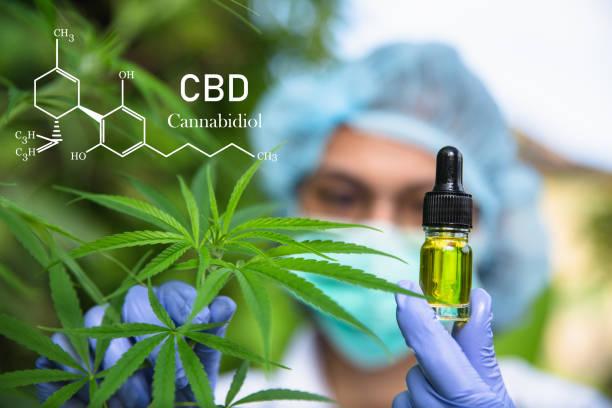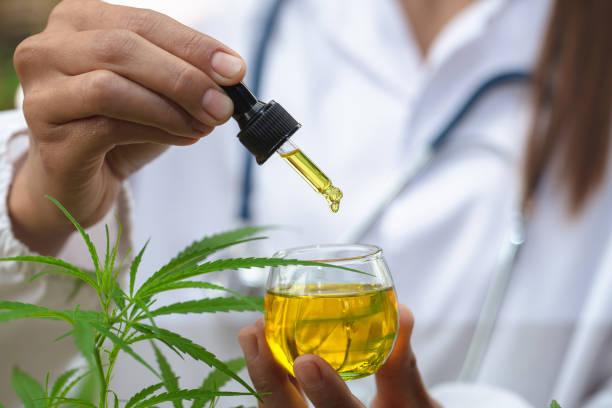CBD produced from the hemp plant must always be collected, derived, and treated appropriately for safe ingestion. Pesticides and other harmful materials are not used to cultivate marijuana in CBD hemp flowers sourced from organic agriculture. The better the quality of hemp, hence more cannabis components are close to the final harvest, and hence the greater the benefits.

Various cannabinoids will bind to multiple endocannabinoid systems, affecting a larger part of the body. Suppose one cannabinoid binds to a transmitter in the cortex that regulates your sleep pattern, whilst the binds to a sensor in the vascular system body to regulate cardiac output. In that case, you’ll have two separate cannabinoids acting on your body at the same time.
Full-Spectrum
Some Dispensaries are made to remove all or most hydrocarbons. Full-spectrum goods are adjusted to include less CBD than broad-spectrum and concentrate products. You can buy high-quality CBD products from trusted brands like NuLeaf Naturals and try them.
All cannabinoids known to occur in CBD, notably their constituents, are present in full-spectrum preparations. Each cannabinoid has its unique set of medicinal properties. Aside from hemp, full-spectrum CBD contains the following active ingredients:
- Cannabichromene (CBC): Can aid with edema, mood changes, and sickness prevention.
- Anti-Swelling, Anti-Nausea, And Anti-Physical and psychological irritation are all properties of cannabidivarin (CBDV).
- Cannabigerol (CBG): Enhances your body’s defenses while also reducing pain and swelling.
Cannabinol (CBN): Sedative and Anti-Inflammatory.
Complete spectrum Substances must still adhere to the 2018 Farm Bill, which allowed the sale, use, and cultivation of all hemp-derived companies that produce no more than 0.3 percent THC, the component liable for the full mind-body high that some customers desire to avoid. However, there’s no need to be anxious about getting high because full-spectrum CBD medications with 0.3 percent THC won’t make you high.

Broad-Spectrum
Cannabinoids are present in broad-spectrum CBD, but not all of them. In comparison to full-spectrum medicines, it includes CBD and other compounds but with little THC. Broad-spectrum CBD provides similar advantages to full-spectrum CBD without the active component.
Concentrate
Cannabidiol is abundant in extracts, but no other compounds, fragrances, or THC are present. Concentrate goods, such as isolate, wax, or condensate, are highly concentrated CBD products with no odor or flavor. These supplements are for people who desire to feel the benefits of a larger CBD exposure in a shorter period. They have comparable benefits as wide and full-spectrum CBD, but as they’ve been emptied of other cannabinoid extracts, they will not create the ensemble effect.
How Does CBD Work with The Entourage Effect?
CBD interacts with the endocannabinoid program’s receptors. CB1 and CB2 endocannabinoids are the two types of endocannabinoids.
CB1 receptors may be found all over the body, but the brain, peripheral nerves, lungs, liver, and intestines are the most abundant. The Delta 9 THC particles present in psychoactive substances, which enable you to feel “high,” are the principal target for this binding site. However, in the case of CBD, these terminals are in charge of regulating and damping cell activity.
This entails controlling the release of dopamine, norepinephrine, and neurotransmitters in the brain, all of which have medicinal benefits on the neurological system. Tranquility, improved appetite, physical pain reduction, and other beneficial compounds result from this inhibition. Phagocytes, such as neutrophils and those in the throat and spleen, have CB2 receptors. Central nervous system aid in the reduction of edema and a variety of other operations that result in superior health.

Does CBD Bind to CB1 and CB2 Receptors?
Partially! Although the CB1 and CB2 receptors were not designed specially to engage with CBD molecules, cannabinoids will bind partly to these neurotransmitters to produce their effects. Active ingredients can either block ECS neurons or operate as imposters, imitating the body’s endocannabinoid system. They impede receptor activation in the system in either case.
Conclusion
The entourage resonance is a form that can enhance the body’s CBD benefits. The greater the effect will be if there are more cannabinoids in a CBD product. Some sensory neurons are more sensitive to particular cannabinoids than many others, and they can either simulate cannabinoids generated in our brains or hinder organ and system functions.

